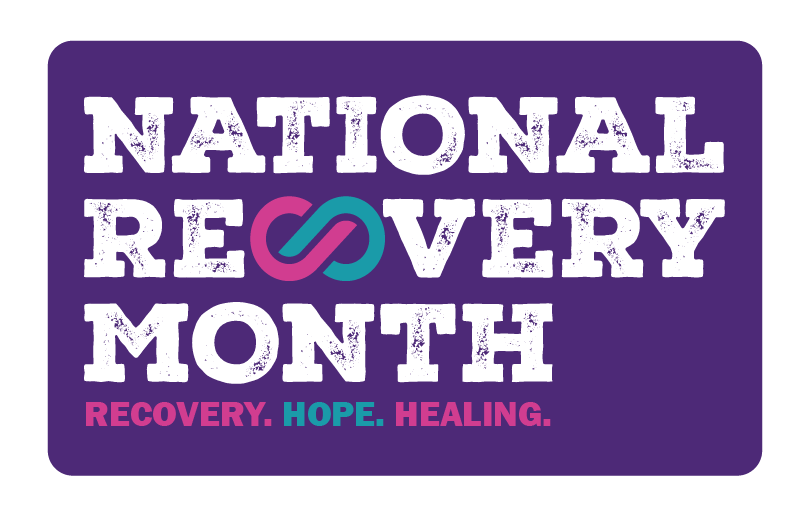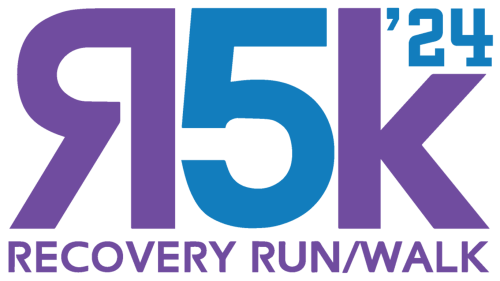Honoring National Recovery Month: Embracing Health, Hope, and Healing in Our Practice
September is National Recovery Month (Recovery Month). This national observance, launched in 1989, aims to promote and support treatment and recovery practices, foster strong recovery communities, and celebrate the service providers who assist individuals recovering from mental illness and addiction. This month serves as a reminder of the importance of continuous support and innovation in the field, encouraging mental health providers to reflect on the impact of their work and explore new ways to enhance recovery outcomes.
The Substance Abuse and Mental Health Services Administration (SAMHSA) is dedicated to increasing public awareness surrounding mental health and addiction recovery. SAMHSA emphasizes a key message: “Recovery is possible for everyone with the right treatment, support, and resources.” This is why SAMHSA publishes a Toolkit every September for people to share important messages about Recovery Month. This Toolkit includes social media content, resources for learning more about how to get people the help they need, and promotional materials to share with your networks.
 SAMHSA defines recovery as a process of change through which individuals improve their health and wellness, live self-directed lives, and strive to reach their full potential. This definition reflects a significant shift in expectations for positive outcomes for those experiencing mental and substance use conditions, or both. In line with this vision, on March 1, 2022, President Biden announced his administration’s strategy to address the nation’s mental health crisis, as outlined in the 2022 Presidential Unity Agenda. To support the recovery of all Americans, SAMHSA collaborated with key partners to develop the National Model Standards for Peer Support Certification, a standardized framework for certifying peer support in substance use disorder, mental health, and family/youth services.
SAMHSA defines recovery as a process of change through which individuals improve their health and wellness, live self-directed lives, and strive to reach their full potential. This definition reflects a significant shift in expectations for positive outcomes for those experiencing mental and substance use conditions, or both. In line with this vision, on March 1, 2022, President Biden announced his administration’s strategy to address the nation’s mental health crisis, as outlined in the 2022 Presidential Unity Agenda. To support the recovery of all Americans, SAMHSA collaborated with key partners to develop the National Model Standards for Peer Support Certification, a standardized framework for certifying peer support in substance use disorder, mental health, and family/youth services.
With 50.2 million Americans in recovery from substance use and/or mental health challenges, the need for robust support systems and effective recovery programs is more crucial than ever. Recovery is a deeply personal journey, and there isn’t a one-size-fits-all approach. It often involves learning coping strategies, addressing each dimension of wellness—physical, emotional, intellectual, social, occupational, financial, environmental, and spiritual—receiving clinical treatment, taking medications, and relying on peer and family support. SAMHSA has identified four major dimensions of recovery: health, home, purpose, and community. Each week this month, we’ll explore one of these dimensions of recovery, starting with a focus on health.
SAMHSA’s Recovery Month Toolkit provides valuable insights and guidance for mental health providers. This week, the toolkit focuses on four key messages related to health that are essential for supporting recovery and well-being. These messages highlight the importance of striving for health and wellness goals, overcoming challenges associated with mental health and substance use conditions, reaching out for help, and making informed, healthy choices. By integrating these principles into our practice, we can enhance the support we offer and strengthen the core aspects of recovery and resilience.

Supporting Clients in Striving for Wellness Goals
For mental health providers, helping clients integrate healthy behaviors for health and wellness is a crucial part of the recovery journey. In our previous post, “7 Lifestyle Factors That Impact Mental Health,” we explore how everyday choices and habits can influence overall well-being and offer practical insights for improving mental health through lifestyle adjustments. It’s important to encourage clients to set and pursue wellness goals by focusing on self-care, learning new coping strategies, and maintaining a balanced approach to physical and mental health. By guiding clients to set personal goals and adopt proactive strategies, we can support them to enhance their well-being and build resilience. This support not only helps clients achieve their individual goals but also reinforces the importance of wellness in their overall recovery process.

Overcoming Challenges
Challenges related to mental health and substance use conditions are significant, but they are not insurmountable. As providers, we understand that overcoming these challenges often requires a multi-faceted approach, including clinical treatment, peer support, and community resources. It’s important to convey to those we work with that recovery is a journey marked by progress, and setbacks are part of the process. With the right support and strategies, individuals can and do overcome these obstacles, moving toward healthier, more fulfilling lives. To better understand the impact of peer support in the recovery process, we invite you to read our previous post, “Peer Recovery Support Workers: The Research Says ‘Yes!‘” which highlights the evidence supporting the effectiveness of peer support workers in enhancing recovery outcomes.

Reaching Out for Help
It’s crucial to emphasize that reaching out for help is not a sign of weakness but a vital step towards recovery. To explore the crucial role of relationships in fostering overall well-being, check out our previous post, “The Lifelong Impact of Social Connections on Well-being,” which delves into how social connections contribute to long-term mental health and happiness. Whether dealing with substance use or mental health conditions, seeking support is a courageous and necessary action. Encouraging those we support to utilize available resources, whether it be professional help, support groups, or trusted individuals, can make a significant difference in their recovery journey. Additionally, you can become a Recovery Ally through this self-paced training offered by CASAT Learning. It’s important for us to remind ourselves and our clients that seeking help is a strength and a key component of the recovery process.

Making Informed Choices
Making informed and healthy choices is a cornerstone of supporting well-being. As providers, we play a critical role in guiding individuals toward making decisions that positively impact their health. This involves educating them about the benefits of healthy lifestyle choices, such as balanced nutrition, regular exercise, and effective stress management techniques. By providing accurate information and supportive resources, we help individuals make choices that enhance their overall wellness and support their recovery journey. For a comprehensive look at the key areas that contribute to mental health, read our previous post, “Enhancing Mental Well-Being: Exploring the 14 Core Domains of Good Mental Health,” which examines the essential domains that support and enhance overall mental well-being.
As we explore and implement SAMHSA’s key messages for Recovery Month, it’s essential to integrate these insights into our practice to better support our clients. By focusing on wellness goals, addressing challenges, encouraging help-seeking behaviors, and promoting informed choices, we can enhance the recovery process and build resilience. Each of these principles is vital in creating a supportive environment for those we serve. Tune in to Season 5: A Holistic Look at Mental Health for valuable insights and strategies on supporting mental health and recovery through a comprehensive exploration of well-being. Together, we can make a meaningful impact on the journey to recovery and well-being by fostering hope and healing.
 Get Involved: This September join NRAP in celebrating Recovery Month by joining us at NRAP’s Recovery Run/Walk Celebration. Get some physical activity, social connection, and help us celebrate people who are in recovery! Also, check out Recovery Month Events hosted by SAMHSA.
Get Involved: This September join NRAP in celebrating Recovery Month by joining us at NRAP’s Recovery Run/Walk Celebration. Get some physical activity, social connection, and help us celebrate people who are in recovery! Also, check out Recovery Month Events hosted by SAMHSA.
References
Substance Abuse and Mental Health Services Administration. (2024). National Recovery Month 2024. https://www.samhsa.gov/recovery-month
Substance Abuse and Mental Health Services Administration. (2024). Recovery Month Toolkit. https://www.samhsa.gov/recovery-month/toolkit
Substance Abuse and Mental Health Services Administration. (2012). SAMHSA’s Working Definition of Recovery. https://store.samhsa.gov/product/samhsas-working-definition-recovery/pep12-recdef
Blog Post Tags:
Related Blog Posts
Related Learning Labs
Related Resources
.
- Buscar Tratamiento de Calidad para Trastornos de uso de Sustancia (Finding Quality Treatment for Substance Use Disorders Spanish Version)
- Finding Quality Treatment for Substance Use Disorders
- Focus On Prevention: Strategies and Programs to Prevent Substance Use
- Monthly Variation in Substance Use Initiation Among Full-Time College Students
- The National Survey on Drug Use and Health (NSDUH) Report: Monthly Variation in Substance Use Initiation Among Adolescents








